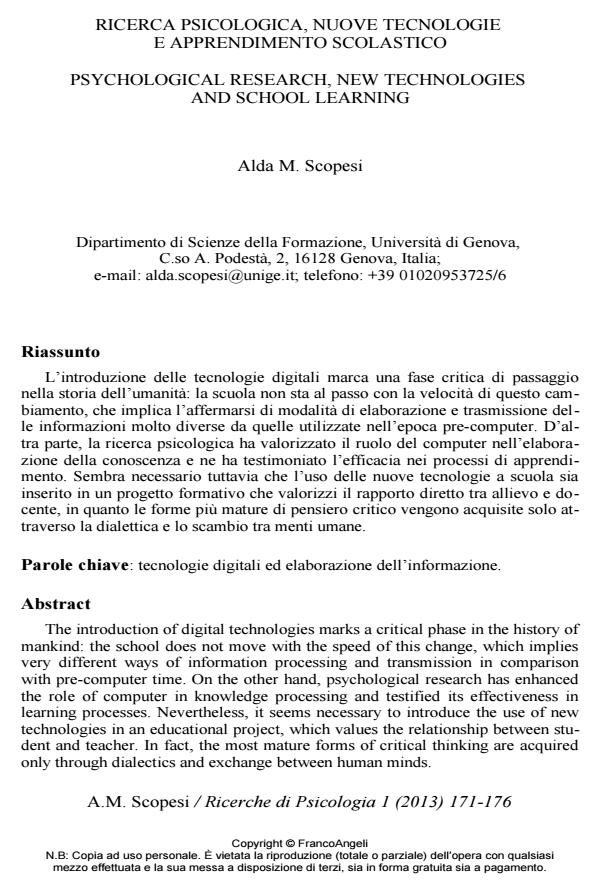Psychological research, new technologies and school learning
Journal title RICERCHE DI PSICOLOGIA
Author/s Alda M. Scopesi
Publishing Year 2013 Issue 2013/1
Language Italian Pages 6 P. 171-176 File size 174 KB
DOI 10.3280/RIP2013-01013
DOI is like a bar code for intellectual property: to have more infomation
click here
Below, you can see the article first page
If you want to buy this article in PDF format, you can do it, following the instructions to buy download credits

FrancoAngeli is member of Publishers International Linking Association, Inc (PILA), a not-for-profit association which run the CrossRef service enabling links to and from online scholarly content.
The introduction of digital technologies marks a critical phase in the history of mankind: the school does not move with the speed of this change, which implies very different ways of information processing and transmission in comparison with pre-computer time. On the other hand, psychological research has enhanced the role of computer in knowledge processing and testified its effectiveness in learning processes. Nevertheless, it seems necessary to introduce the use of new technologies in an educational project, which values the relationship between student and teacher. In fact, the most mature forms of critical thinking are acquired only through dialectics and exchange between human minds
Keywords: Digital technologies and information processing
Alda M. Scopesi, Ricerca psicologica, nuove tecnologie e apprendimento scolastico in "RICERCHE DI PSICOLOGIA " 1/2013, pp 171-176, DOI: 10.3280/RIP2013-01013